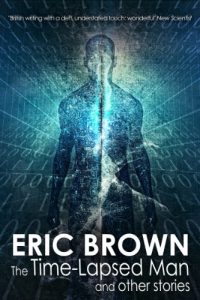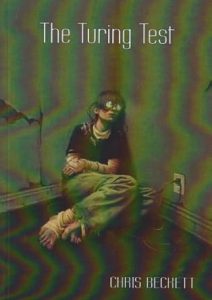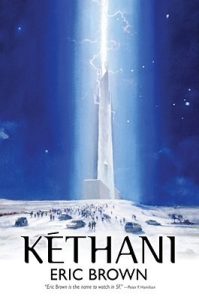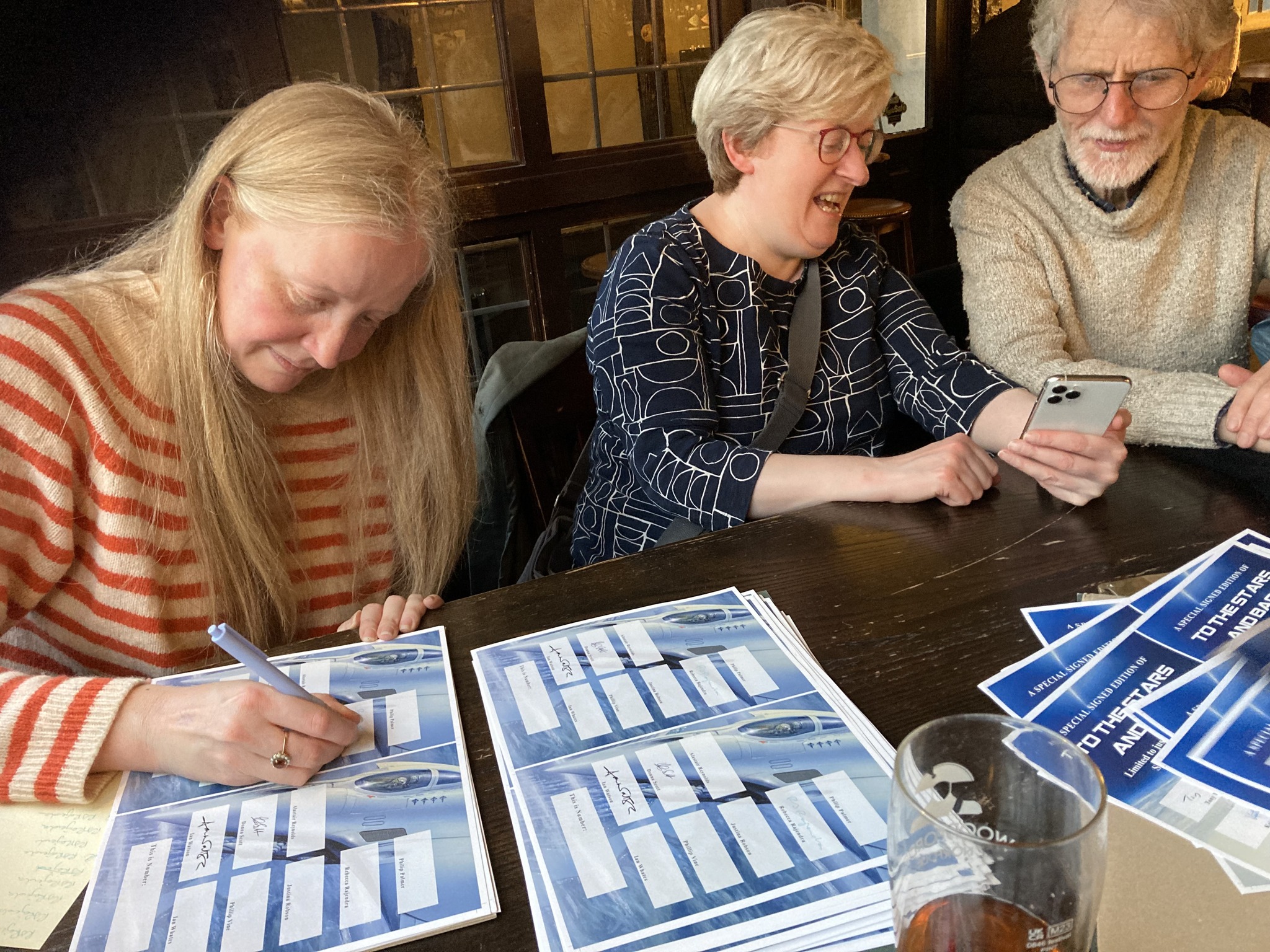To all who were privileged to have known Eric, who died one year ago today, and to all those who read his work, he was simply the best of friends, the best of storytellers.
I first met Eric in 2009 on the upstairs landing of a children’s nursery in St Ives, Cambridgeshire. He had his young daughter, Freya in tow, her first morning with her new friends. I had seen the completed application form from the Sinclair-Browns as I was managing the nursery on behalf of my wife. I noted the request for vegetarian food and smiled. We had something in common already. My smile widened when I heard from Eric that he and his wife had recently moved from Hebden Bridge in Yorkshire.
‘Nice place,’ Eric said, ‘liberal values.’
‘I lived in Yorkshire too,’ I said. ‘Spent some of my teenage years in Hull.’
‘Hull City, the Tigers?’
‘That’s right,’ I said. ‘I never missed a match.’
‘I’m a Leeds United fan,’ Eric said.
‘Well, someone’s got to be,’ I replied.
Both of us now sported grins as wide as the Humber and whatever river Leeds sits on.
We had almost forgotten Freya but she settled quickly, building towers from wooden bricks.
‘Shall I leave her now?’ Eric asked.
‘Best not to hang around too long,’ I said. ‘She’ll be fine.’
Eric still looked concerned, reluctant to abandon his daughter.
‘Well, you’re the experts,’ he said at last, and forced a wan smile.
I needed to change the subject, take this new parent’s mind away from a reluctant and painful – if temporary – separation.
‘What do you do, by the way?’ I said, thinking his mid-morning appointment might indicate a profession beyond the confines of nine-to-five drudgery.
We paused half way down the main staircase of the Victorian house my wife and I had converted into a nursery.
‘Oh, I’m a writer.’
Eric looked sheepish, almost apologetic.
‘My wife’s a writer too,’ he added.
Later, I came to understand, Eric’s deflection of our conversation away from himself was typical of his humility, his generosity of spirit.
When I met the unassuming Mr Brown, proud father of Freya, in St Ives Nursery, he was already an established star of British Science Fiction and the recipient of two British Science Fiction Association awards for his stories, Hunting the Slarque in 1999, and Children of Winter in 2001. In addition, in 1988, his story, The Time-Lapsed Man, had won the Interzone readers’ poll for most admired story of 1988.

His wife, Finn Sinclair, was the author of an academic study of the medieval French Chanson de Geste: Milk and Blood.
Unknowing, I blundered in, wedged my own paltry achievements into the conversation.
‘I’m a writer too!’ I exclaimed.
(My achievements at that time were a handful of published poems and a short story published in an anthology, Drabble II, which, coincidentally, also contained a one hundred word tale by Eric Brown, The Meaning of Life.)
‘Really?’ Eric said. ‘That’s amazing.’
The serendipities were accumulating.
Both of us writers (of sorts, in my case), both of us vegetarians (vegan in my case), both of us with Yorkshire connections (Humberside in my case), and both of us with left of centre politics (radical socialism in my case).
I nearly said, what’s not to like?
The next time I saw Eric, some weeks later, he said, ‘I’m part of a little group of writers who meet occasionally in the Pickerel pub in Cambridge.’
He hesitated (in case, I almost thought, his little group might be beneath my condescension to consider). ‘I wonder whether you might like to join us one evening.’
In fact, the gathering included Ian Watson (whose story, The Sadim Touch, was also included in Drabble II), an enfant terrible of British SF, with twenty novels published by Victor Gollancz between1973 and 1997, and Ian Whates, the founder of NewCon Press, a director of the British Science Fiction Association, and author of both short stories and novels including the City of a Hundred Rows series. In attendance, too, were Una McCormack, a prolific author of fan fiction novels relating to Star Trek and to Dr Who, and Rebecca Payne, whose first ever story had recently been accepted by Interzone, the primary magazine of British Science Fiction and Fantasy.

Star of the show on my initial appearance at the Pickerel, however, was Chris Beckett, whose short story collection, The Turing Test, had just been awarded the Edge Hill Prize, a prestigious – and financially valuable – award previously won by Colm Toibin and Claire Keegan, whose roster of past judges included Hilary Mantel and AL Kennedy. Prior to Chris’s triumph, it had been considered nigh on impossible that a writer of genre fiction and published by a small press might carry off the prize.
Interestingly, Chris was as modest and unassuming as Eric.
I was made welcome by all and continued to attend monthly meetings for many years until my incipient deafness made conversations amidst the hubbub of the Pickerel increasingly difficult.

Later in 2009, a few months after meeting Eric, and a few months after he had given me copies of his short story collection, The Time Lapsed Man, his most recent novel, Kethani, and his best-selling novel, Helix, and shown me, with wry amusement and an acknowledgement that his knowledge of Eastern European languages was not up to scratch, a Romanian edition of Bengal Station, he asked me what I was writing.

I confessed that I had been inspired by our gatherings at the Pickerel and was attempting to put together a collection of horror stories I had written some twenty-five years ago.
‘Really,’ Eric said. ‘I’d love to read them.’
‘Okay,’ I replied, already beginning to panic at the prospect of this celebrated author reading my juvenilia. ‘Just give me a week or so to have another look at the stories, will you?’
‘Whenever you’re ready, Phillip.’
In fact, I had some small success back in the 1980s with the publication of a dark tale inspired by Stephen King’s The Mist called The Christmas Star – as well as the story in Drabble II.
Nevertheless, I was shaking as I returned to the nursery office.
It was one thing to write stories, dreaming of worldwide bestseller success similar to that achieved by King’s Carrie, Salem’s Lot, The Shining, The Stand, etc, etc. It was quite another matter, however, to subject my puny efforts to scrutiny by an award-winning author. I understood that, as long as this examination, this ordeal was postponed, my ambitions, my fantasies of fame, would remain unviolated by reality.
Still, I compiled a gathering of tales, portentously titled, Songs of Ruin, Retribution, and Redemption.
‘I hope they’re not too bad,’ I said to Eric.
‘I’ll get back to you,’ he replied.
Days passed, weeks passed, months passed.
Gradually, my heightened senses of excitement, of anticipation, of fear of failure, of potential humiliation, eased to a dull acceptance that Eric had read my stories, found them lacking, but was too kind, too embarrassed to pass comment or judgement.
At some point, early in the following year, at a Pickerel meeting, I saw my folder of stories nestling in Eric’s lap.
I don’t know how I survived the casual bonhomie of the evening’s get together without some kind of mental disintegration. Eric Brown’s opinion of my stories mattered to me at that moment more than anything else in the world. I survived the next couple of hours only by telling myself that the best, the most realistic hope was a polite yet anodyne, comment such as Thanks for letting me see your tales, I enjoyed reading them, something akin to a kind rejection slip from a sympathetic publisher.
As the Pickerel Irregulars (as Ian Whates dubbed us) dispersed, I hung back, hardly daring to cast my eyes in Eric’s direction. I was a prisoner in the dock, waiting for the judge to don his black cap, to pronounce upon my imminent execution.
‘I’ve got your stories, Phillip.’
‘Oh,’ I said, still averting my gaze.
‘Sorry I took so long.’
All about us was an innocent cacophony of drunken conversation.
Out of the corner of my eye, I saw Ian Whates easing himself around denizens of the darkest corners of the Pickerel, heading for the exit.
‘Take care you two,’ I heard him say.
‘And you Big Ian,’ I heard myself reply.
I saw Eric’s outstretched hand containing the folder containing my poor impersonations of stories.
I saw his smile.
‘I enjoyed reading them,’ he said.
My heart sank at the impending doubling down on politeness.
‘Yes,’ Eric added, ‘you can really write.’
‘I can?’ I said.
‘You certainly can,’ he replied.
‘Really?’
Eric laughed and nodded.
‘I was so relieved,’ he added.
The Pickerel was emptying, closing time.
‘Can I just ask you?’ I said.
I hesitated, unsure of how to proceed.
‘What took you so long?’
The bluntness, the rudeness of my question took me by surprise.
‘You want to know the truth?’
I nodded.
‘Well, as soon as you handed me your folder, I regretted asking to see your stories. I was sure they would be bad – most people’s stories are bad, however well intentioned – and I was equally sure that, if I told you they were bad, it would be the end of our friendship.’
‘So you didn’t read them?’
‘Not for ages, not until last week, in fact.’
We were the last men standing in the Pickerel.
‘Look,’ Eric added, ‘I hope you don’t mind, but I’ve scribbled some suggestions on some of the pages.’
It was the beginning of a working relationship that was to last until Eric’s untimely death in 2023.
During the thirteen years following Eric’s first critique of my writing, he read and scribbled upon everything I wrote and, in return, I read and scribbled upon everything he wrote.
I hope I was of some small help.
As for me, I would never have become a published author without the invaluable assistance I received from the best friend anyone could ever have.

Earlier this month, a reunion of the Pickerel Irregulars took place to remember Eric and to celebrate the upcoming publication of an anthology of stories in celebration of his life and work. To the Stars and Back contains new tales told by all his friends and fellow storytellers. Big Ian was there organising signatures for the limited edition hardback, and so was Chris, and so was Una, and so was Becks (now writing under the name of Rebecca Rajendra), and so was I. Ian Watson (having moved to Spain) was excused for his absence.
Rebecca Rajendra, Una McCormack, and Phillip Vine at a book signing in the Pickerel.

Included within the pages of Ian Whates’ anthology of tales in honour of Eric is the very first story I have written without the inestimable critical intervention of my friend.
I hope my tale, The Neglected Bookshop, has done Eric justice.
21 March 2024
